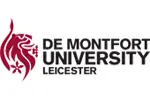We're moving! This site will be relocating to goingto.university in 2026. Please update your bookmarks to the new address.


| The award | How you will study | Study duration | Course start | Domestic course fees | International course fees |
|---|---|---|---|---|---|
| BMedSc | Full-time | 3 - 4 years | September | GBP 9250 per year | GBP 15750 per year |
Our Medical Science programme always places students’ interest and learning experience at the heart of the teaching and learning activity, as supported by a strong integration of Universal Design for Learning (UDL) principles and inclusive teaching. We have dedicated staff with diverse experience, outstanding level of pastoral care as well as scientific and clinical research informed teaching.
After successfully completing year one, Medical Science students will be equipped with fundamental knowledge of and practical skills in chemistry and biochemistry, anatomy and physiology, microbiology and personal and professional skills. In year two, students integrate their understanding of the healthy human body with disease pathology and processes before being introduced to the disciplines and techniques involved in delivering quality healthcare, and an insight into management principles relevant to many professional settings in year three.
In year three, students also design and implement an independent research project, either laboratory, literature-based or clinical-based, which is written up as a scientific article and presented as a public engagement poster. This demands excellent time management and organisational skills, the ability to plan and to execute scientific research, strong written communication skills, the ability to read and evaluate critically scientific articles, as well as excellent problem-solving, numeracy and analytical skills.
The practical component of this course equips graduates with experience and knowledge of a range of scientific equipment and procedures, including ELISAs, cell culture, histology, SDS-PAGE and western blotting, history taking, communication skills, measurement of vital signs, providing first aid, ECG and other monitoring methods for cardiovascular and health conditions.
Key features
2023/24 tuition fees for UK students: £9,250
2023/24 tuition fees for international students: £15,750
Additional costs: You may incur additional costs for this programme, including the cost of travelling to and from project/placement locations.
GCSEs
Plus one of the following:
A Level
T Levels
Merit in Science (with optional module in Laboratory Science only)
BTEC
Access course
English and Maths GCSE required at grade 4 (C) or above as separate qualifications
We will normally require students to have had a break from full-time education before undertaking the Access course
International Baccalaureate: 28+ with six higher level points in Chemistry or Biology
Interview: No
Work experience: No
Personal statement selection criteria
We welcome applications from mature students with non-standard qualifications
English language requirements
If English is not your first language an IELTS score of 6.5 overall is essential.
Below are some suggested courses at other providers that you may also be interested in:
Interdisciplinary Arts Bachelor of International Liberal Arts
International College of Liberal Arts (iCLA) at Yamanashi Gakuin University
Find out moreMarketing Management - Digital Business Concepts Bachelor Degree
Fontys Economy Tilburg
Find out moreLaw - International Migration and Refugee Law Master Degree
Vrije Universiteit Amsterdam
Find out moreConsider a Foundation or Pathway course at De Montfort University to prepare for your chosen course:
If you do not meet the entry requirements for this course then consider one of these courses from another institution:
There are 193 other courses listed from De Montfort University. A selection of these are displayed below:
Acting (Creative Performance Practice) - 2 Year Accelerated Degree BA (Hons)
De Montfort University
Find out moreJoin the StudyLink email list and never miss a chance to turn your study abroad dreams into reality!
